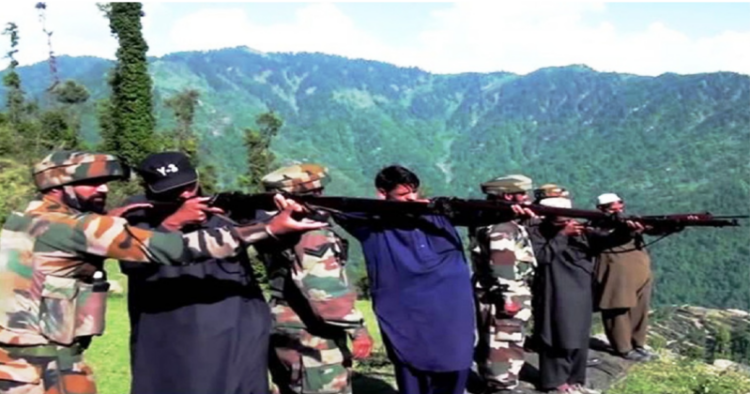Jammu, a region grappling with the ever-changing face of terrorism, is set to implement a new security strategy. To combat the growing threat, authorities have proposed reviving Village Defence Committees and deploying ex-Army personnel throughout the area.
In a concerning development, the peaceful Jammu region has recently witnessed a surge in terrorist activities, prompting security experts to call for a thorough reassessment of current counter-terrorism strategies employed by the security forces. Recent weeks have seen a series of violent incidents, including a tragic ambush in the remote forest areas of Kathua, resulting in the loss of nine army personnel, including a captain. The perpetrators, who have adopted the elusive “shoot and scoot” tactic, remain at large, posing a significant challenge to law enforcement agencies.
Speaking about the change in the tactics that have been adopted by the terrorists, Lt General MK Das (Retd) stated,”Having very little success in carrying out terror attacks in the Kashmir valley, Pak Deep State has shifted focus to the Jammu region in the last two months. This time around, the terrorists are better trained and are using sophisticated weapons and equipment. There are inputs of Pak Army officers closely monitoring the terror attacks in Jammu.”
On the issue of why terrorism raised its head in Jammu and the challenges that are being faced by the armed forces, Das stated, “Jammu region was largely peaceful for the last three years. This led to the weakening of human intelligence. In addition, Pakistan has been able to cultivate a network of Over Ground Workers amongst the locals. Also the geographical terrain is very tough to carry out combing operations. But the Indian Army has already initiated steps to accelerate the operations in the area.”
Distinguishing between the operational environments of Jammu and the Valley, Lt Gen Hooda (Retd) pointed out that while terrorists in Kashmir are typically confined to localised areas, those in Jammu have strategically positioned themselves in challenging terrains. This strategic positioning complicates military responses, as troops often face arduous journeys of eight to ten hours to reach specific locations, further hampering swift counter-terrorism operations.
Hooda has warned against lapses in vigilance, cautioning that a prolonged period of relative peace in the Jammu region may have inadvertently led to complacency within the security establishment.
Following a 2005 campaign that significantly reduced militant activities in Jammu, the region has seen a resurgence of violence, particularly in the twin border districts of Rajouri and Poonch. Since 2021, over 70 people, including 52 security personnel, have lost their lives in terror-related incidents in the region.
Steps to combat terrorism in Jammu
With regards to the measures that need to be taken to root out terrorism from Jammu, Das stated, “The fight against terror would require active participation of Village Defence Committee and Ex Servicemen based in the region. With eyes and ears all around, the security forces will be able to neutralise the terrorists more easily.”
Similar point was reiterated by Hooda, who also stressed on the need to revive the village defence committees. He called for the revival of Village Defence Committees and the recruitment of more Special Police Officers from local communities to enhance counter-terrorism efforts. “The locals have traditionally been the eyes and ears of the Army in this region,” he noted.




















Comments